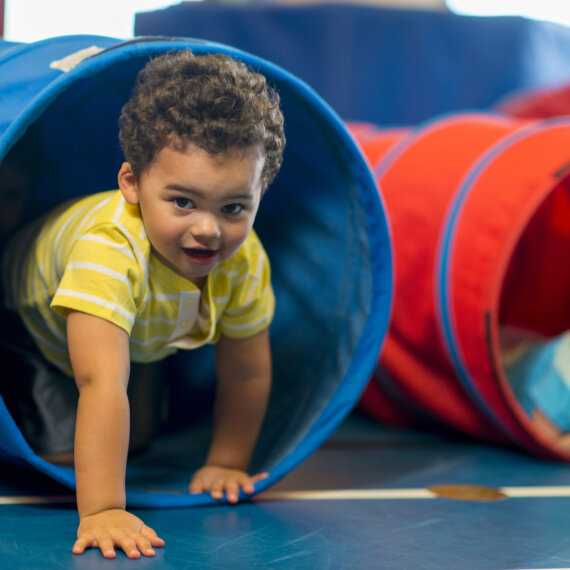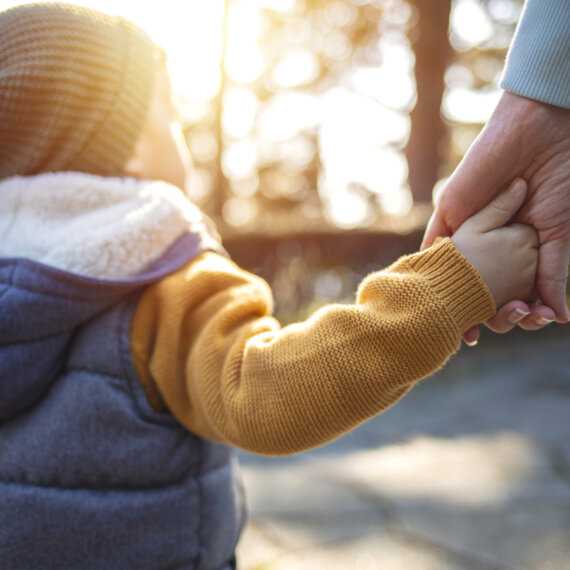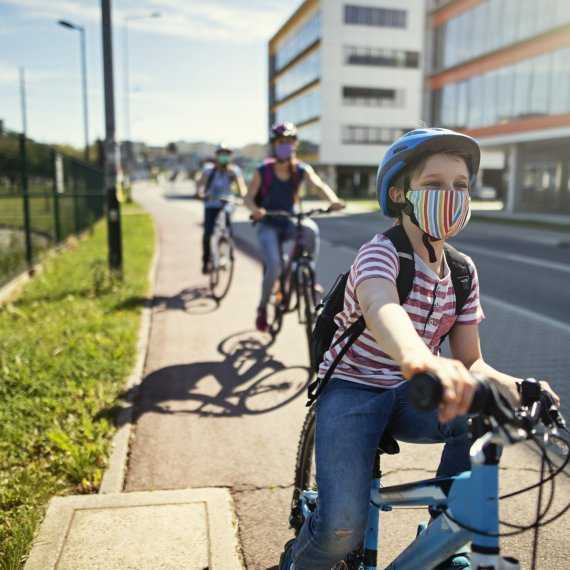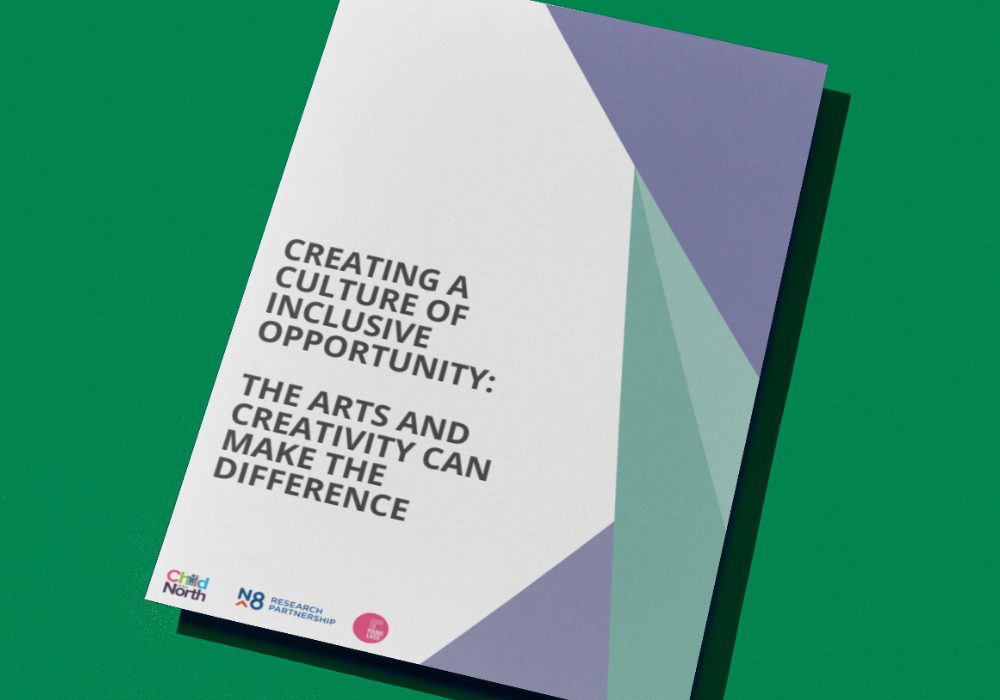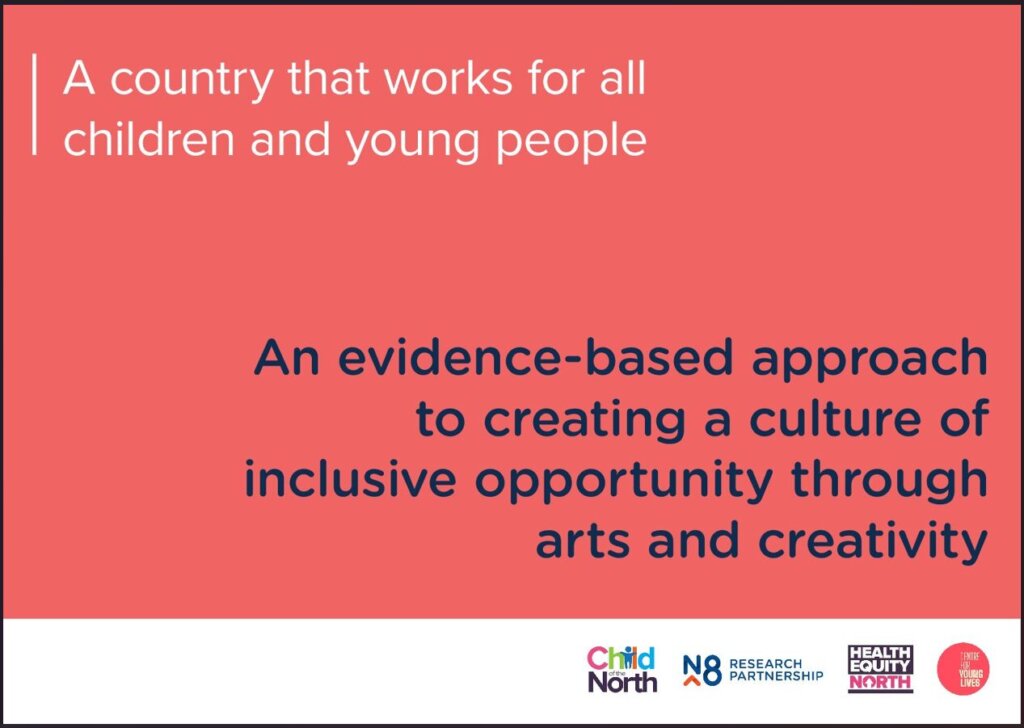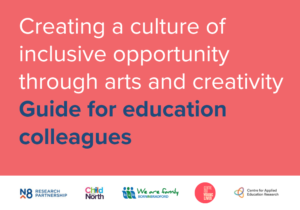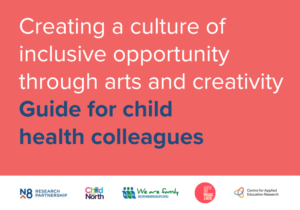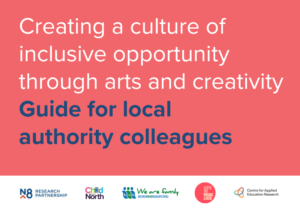Creating a culture of inclusive opportunity through arts and creativity
For a country that works for all children and young people.
We are calling on the government to put children first. Our 2024 report series provides evidence-based plans and recommendations on how to improve outcomes for children and young people in the North of England and beyond. Published alongside 2025 report updates, new practitioner toolkits have been designed to support schools, child health services, and local authorities to implement the report recommendations and put children first. #ChildrenFirst
Produced jointly by Child of the North and the Centre for Young Lives, the twelfth and final report in the Child of the North 2024/25 campaign series warns the talents of millions of children are being ignored and wasted, and calls for creativity to be embedded into an inclusive school curriculum supporting all children – including those with SEND – to develop a new generation of creatives to boost economic growth.
First published in March 2025, An evidence-based approach to creating a culture of inclusive opportunity through arts and creativity, calls for the Government’s Opportunity Mission to boost culture, creativity, and arts in schools to inspire children, improve mental health, strengthen school belonging, tackle the school attendance and attainment crises, and support children from the most disadvantaged backgrounds to build careers in the creative industries.
An update Creating a culture of inclusive opportunity: The arts and creativity can make the difference released in November 2025, is the twelfth and final report update as part of the #ChildrenFirst campaign, drawing attention back to the issues highlighted in the series, and providing a series of toolkits designed to support schools, child health services and local authorities to implement the report recommendations and improve outcomes for all children.
We need the government, policymakers, practitioners, academics, communities and young people to work together to build a country that works for all children and young people.
How To Guides
A series of toolkits have been developed to help practitioners and organisations take practical steps to improve the health and wellbeing of the children and young people with whom they work directly. Building on the findings of the Child of the North reports, these ‘How To’ guides provide evidence and suggestions about how all parties can work together.
Webinar
In April 2025 a number of the report’s authors came together to discuss the report’s findings and policy recommendations, including:
- Prof Simon James (Durham University)
- Gavin Davenport (Edgehill University)
- Prof Lynn Newton (Durham University)
- Dr Nathan Jones (Lancaster University)
- Dr Penny Hay (Bath Spa University)
- Dr Paige Davis (University of Leeds)
Baroness Anne Longfield, Executive Chair of the Centre for Young Lives, said:
“Britain’s children have got talent – but we are often too slow to nurture it and we are frequently failing to harness the innate skills in our communities through our education system. This is hindering the ability of our country to flourish and thrive.
“Many of our most successful musicians and bands have benefited from a rich, cultural, and creative education in the private school sector. We need to invest in boosting the opportunities of children in our state schools, from all backgrounds, as part of a bold ambition to develop truly inclusive education, support creativity throughout childhood and to tackle problems like the attendance crisis and attainment gap.
“A career in the arts, music, and cultural industries must not become the preserve of only the most advantaged. Creativity and the expressive arts should be part and parcel of every child’s education from primary school, not just a small minority.
“This report provides evidence and proposals for how we can create more opportunities for all children to nurture and develop creative skills which are so important to growing our economy, and which would ensure we have a more diverse and thriving creative arts and music sector.”
Dr Camilla Kingdon, Former President of the Royal College of Paediatrics and Child Health, said:
“We cannot afford to continue to squander the innate talent that exists everywhere in our country. We must encourage our future Benjamin Zephaniahs, Ed Sheerans, and Bridget Rileys – we have a rich cultural heritage to nurture. We want a society where children of all abilities and talents can flourish.
“That relies on creating an environment that enables a child to discover their hidden musical talent, or their under-developed dramatic skills, or their untapped artistic ability – and this cannot be reliant on having parents who have time and resources to nurture these talents.
“We must have an education system that sees investment in art and creativity as equally important to languages and maths or science. There cannot be a hierarchy of talents – all of them are important and should be collectively nurtured by society.”
Professor Mark Mon Williams, Child of The North report series editor, said:
“The evidence is clear- embedding creative experiences in education has the power to boost social mobility, reduce inequalities, and equip children with the skills they need to thrive in a rapidly changing world and grow our economy.
“This report provides a blueprint for ensuring that every child, regardless of background, has access to the transformative power of a creative educational experience. It could not be launched at a better time as Bradford takes centre stage as the UK City of Culture 2025 and commits to supporting the government’s Opportunity Mission.
“It is time to recognise that creativity is not an optional extra—it is a fundamental pillar of an inclusive, opportunity-rich society.”
Professor Simon J. James, Durham University and Executive report editor, said:
“The evidence shows that every one of us is, or can be creative – but is the country doing all we can do to encourage all our children and young people to be creative, and to think creatively? There are profound economic and geographic inequalities in access to an education that develops creativity and creative thinking, inequalities which we need to address for the sake of all children, whatever their background, and wherever they grow up.
“We need to ensure we are nurturing not only the stars of the future, but also, the orchestras, brass bands and music teachers so vital for the happiness and wellbeing of our communities – and the support that is needed begins in childhood.
“The evidence shows starkly both how creativity is valued by multiple industries and employers, but also how it has been threatened and devalued in some parts of the education system. With a new government promising to put creativity at the heart of every British child’s education, we need to act now.”
Sign up for updates on our 2024/25 Campaign
We will only use this data for the purposes of providing updates on the Child of the North 2024/25 campaign and report series. For more information see the Privacy Policy at https://www.sheffield.ac.uk/privacy
Previous Reports
Previous reports can be found archived on our Child of the North Reports page.
Contact Us
Stephen Parkinson, Research Partnership Manager
***
